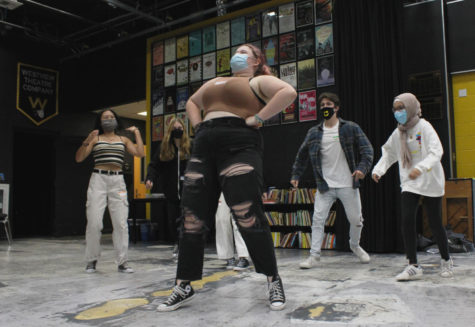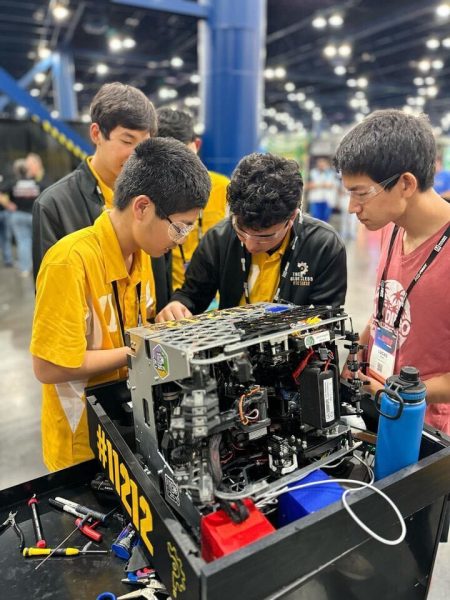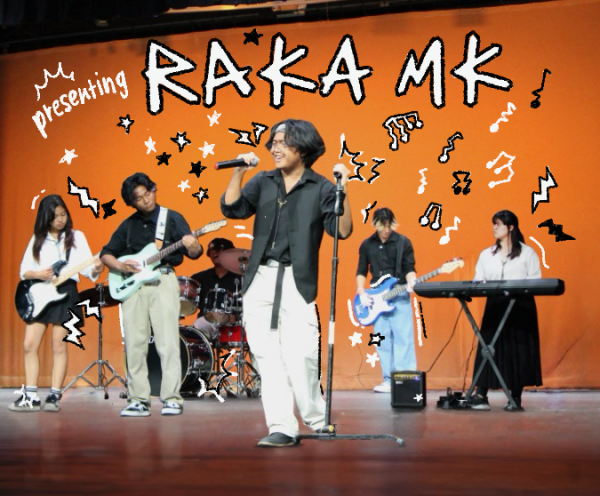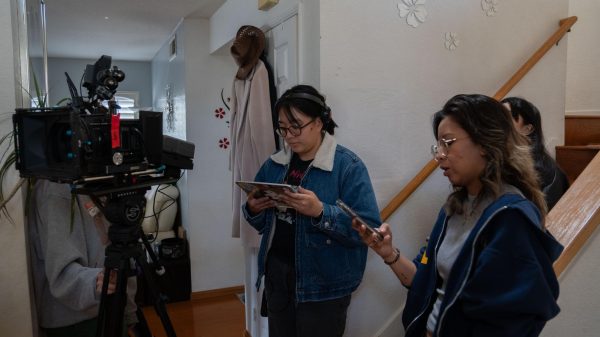Improv Empowers Student Performers
October 8, 2021

When Cassandra Nguyen (12) entered the theater that one fateful night four years ago, she didn’t realize that it would shape the rest of her high school experience. It was improv senior night, the senior squad vs. the rest of the improv team.
“The seniors were absolutely laying their hearts on the stage,” she said. “You could tell they were having an absolute blast.”
Nguyen studied the environment around her, taking in the atmosphere of the show. Sitting in her seat, she was attentive and intrigued.
“I was watching the audience, hearing their laughter, and I was fascinated,” she said “I was thinking, ‘how can they just be naturally so hilarious?’”
Soon, the curtains closed and the exit doors opened. Nguyen left in a state of excitement and soon had a plan for her high school experience.
“One thing was on my mind,” she said. “I gotta be on that stage. I gotta be on the stage in four years.”
Now, four years and an improv team captain election later, this goal has become a reality.
“I’ve learned so much in my experience in improv,” she said. “Not only in improving my comedy skills but also in improving my teamwork, leadership and creativity.”
Improv as a competitive activity works similarly to sports, where teams work together to accomplish a common goal—in this case, spontaneous comedy and storytelling. Improv teams must create off-the-cuff narratives and are scored on how cohesive, interesting and compelling they can make their stories through collaboration and cooperation.
“I found that improv only works if you trust the people you’re performing with,” she said. “Not only trust that they will support you and everyone else in the scene but also that they will support themselves.”
This need for trust is very apparent in the Improv category: Apartments, where three pairs of players who have individual plot lines which by the end all intertwine.
“The game only works if every single player is involved,”’ said Nguyen. “It’s not like you can simply barge onto the stage at any moment; it has to make sense in the terms of the scene as a whole. You have to be confident that others won’t try and monopolize the scene, and that the team as a whole will be able to create a cohesive narrative.
Fellow improv team member David Azcona (11) also finds trust an important part of improv. With more than 10 years spent in traditional theater, he has had plenty of time to see how necessary it is for everyone to know what roles they play in order to nail a solid performance. Azcona says this necessity is only heightened when the scripts are taken away.
“You need to trust that your scene partner is going to go along with whatever you say and help support you,” Azcona said. “This is why creating a good team dynamic is so important.”
Without team members being on the same page, story cohesion and comedic value would soon crumble, hence the importance of each person understanding their respective part in each skit.
“You can’t always be the main character,” Azcona said. “You need to be willing to support, to be able to play the background character, to be the one who sets up the punch line for other people.”
During tryouts Nguyen doesn’t just look for people to add to the team who are natural leads but also people who are able to set up others’ jokes.
“If there are a million people trying to do their own thing, and there’s absolutely no support, it’ll be horrible improv,” Nguyen said. “Sometimes, the funniest things do come from the supporting characters. It’s kind of like in sports: You have to have some on offense but also some on defense, and even if you play defense, your blocks can still be the plays that win the game.”
In order to achieve this sense of a “hive mind,” the team participates in bonding activities together. The requirement for a strong team link is so pivotal to the sport that teammates must create bonds so they can surpass this title and become something greater: friends.
“We hang out all the time,” Azcona said. “It really is a family. By the time we get to the shows, we don’t need to even worry about how we will interact on stage. I can set up a joke and I know for sure that my teammate will have the punch line ready. I know we don’t need to talk about it because we all just feel connected.”







